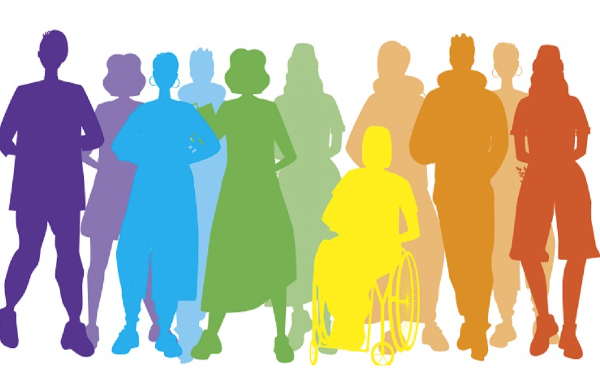
 A social workers’ role is to support people experiencing marginalization, which includes LGBTQ+ people. Also, council staff (including social workers) must consider and implement actions to reduce inequalities related to protected characteristics, including sexual orientation and gender reassignment, under the Equality Act’s 2010 public sector equality duty. However, there is evidence that:
A social workers’ role is to support people experiencing marginalization, which includes LGBTQ+ people. Also, council staff (including social workers) must consider and implement actions to reduce inequalities related to protected characteristics, including sexual orientation and gender reassignment, under the Equality Act’s 2010 public sector equality duty. However, there is evidence that:
- Professionals are uncertain about how to respond to LGBTQ+ young people.
- Social work education and training contains little teaching or content about LGBTQ+ people and their needs.
- There is not enough research into LGBTQ+ people’s experiences and how social workers engage with them.
A Community Care Inform guide, by social work lecturer Jason Schaub and social worker Alex Greenchester, explores some of the challenges of putting these principles into practice and provides guidance for social workers in responding more inclusively to LGBTQ+ people. It is available on both Inform Children and Inform Adults.
Risks and discrimination that LGBTQ+ people face
The extent of the discrimination faced by LGBTQ+ was illustrated by the government’s 2018 LGBT Survey, which found that:
- 68% of respondents with a minority sexual orientation said they had avoided holding hands in public with a same-sex partner for fear of a negative reaction from others.
- 26% of respondents had experienced verbal harassment, insults or other hurtful comments from someone they did not live with because they were LGBT, in the preceding 12 months.
- 6% had been threatened with physical or sexual harassment, 2% had experienced physical violence and 2% sexual violence from someone they did not live with because they were LGBT, in the previous 12 months.
Among groups that social workers work with, LGBTQ+ people have particular needs due to their experience of discrimination:
- Mental health: There is some evidence that common mental health problems are more prevalent among LGBTQ+ people than the general population. ‘Minority stress’ theory, which considers the experience of ongoing discrimination, has been used as a way of explaining levels of mental ill-health and substance misuse among LGBTQ+ people.
- Older people and adults: Older people are likely to have experienced longer exposure to discrimination and hostility, including through living through discriminatory laws. Being aware of this may help social workers understand their experiences better. Research has also found that older LGBTQ+ people are frequently missed by services such as care homes, or their relationships not considered appropriate by providers. The delivery of good care in residential settings hinges on care staff having knowledge and awareness of LGBTQ+ people and services providing a welcoming environment that explicitly reflects their lives.
- Younger people: There is evidence that LGBTQ+ young people are at greater risk of going into care or experiencing homelessness than their peers due to the negative reactions of families or communities. And a 2017 study commissioned by Stonewall found almost half of LGBT young people experienced bullying at school. These experiences result in greater levels of mental ill-health, substance misuse and sexual health issues for LGBTQ+ young people than their peers
- Disability: Overall, there is very little research about disabled LGBTQ+ people. However, a 2018 study found that over 50% of disabled LGBTQ+ people never or only sometimes disclosed their sexual orientation or gender identities to their personal assistants (PAs), and less than one third were ‘very comfortable’ about discussing their support needs pertaining to being LGBTQ+ with their PAs.
Practice issues in working with LGBTQ+ people
While social work assessments often consider the support that family and extended family can give a person, LGBTQ+ people are more likely than others to face challenges with their family. They may then seek support from a “chosen family” – a group of people who are not biologically related but support and care for each other.
Social workers may be uncertain about how to approach conversations surrounding sexuality and gender identity because they see them as ‘private’ and not appropriate for discussion during assessment. But how can a person’s needs be assessed holistically if they are LGBTQ+ and the social worker does not know this?
Creating an inclusive environment
Given LGBTQ+ people’s experience of discrimination, harassment and stigma, creating an inclusive environment for them is critical. This should include:
- Listening to how people describe their identity (pronouns, relationships) and using their language.
- Displaying LGBTQ+ inclusive literature in the waiting areas.
- Using visible signs like rainbow ‘Pride’ lanyards or pronouns on name tags.
- Having mandatory training for all staff about LGBTQ+ identities and policy expectations.
The guide can be accessed by subscribers to both Community Care Inform Adults and Inform Children. It contains full references.
Not sure if you have access to Community Care Inform through your local authority of organisation or have other questions? Find help here.
Inform Children subscribers can also take advantage of the following resources:
- Adoption by same sex couples
- Domestic abuse in LGBTQ relationships
- Learn on the go podcast: social work with transgender people
For Inform Adults subscribers, we have:







 Bournemouth, Christchurch and Poole
Bournemouth, Christchurch and Poole  Hampshire County Council
Hampshire County Council  Oxfordshire County Council
Oxfordshire County Council  South Gloucestershire Council
South Gloucestershire Council  Wokingham Borough Council
Wokingham Borough Council  Webinar: building a practice framework with the influence of practitioner voice
Webinar: building a practice framework with the influence of practitioner voice  ‘They don’t have to retell their story’: building long-lasting relationships with children and young people
‘They don’t have to retell their story’: building long-lasting relationships with children and young people  Podcast: returning to social work after becoming a first-time parent
Podcast: returning to social work after becoming a first-time parent  How managers are inspiring social workers to progress in their careers
How managers are inspiring social workers to progress in their careers  Workforce Insights – showcasing a selection of the sector’s top recruiters
Workforce Insights – showcasing a selection of the sector’s top recruiters 

 Facebook
Facebook X
X LinkedIn
LinkedIn Instagram
Instagram
[…] workers should consider when working with individuals who are part of the LGBT+ community, then click here to view a very good article published by Community […]